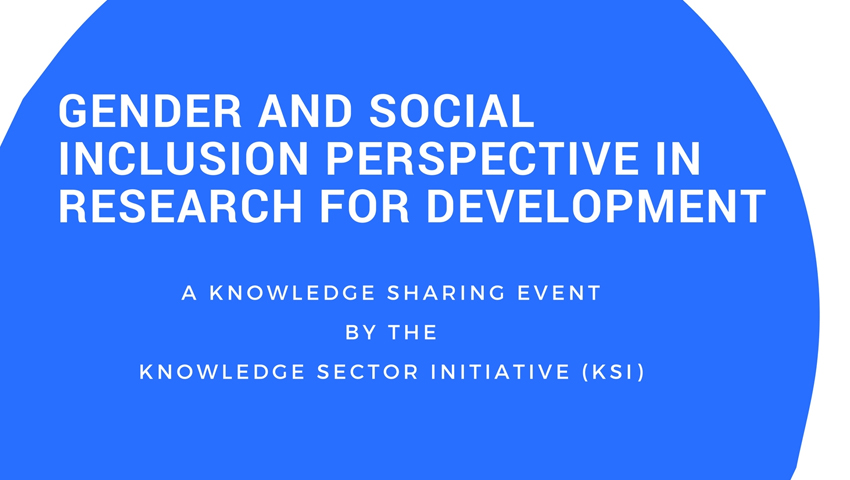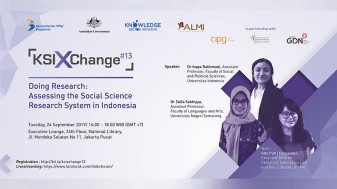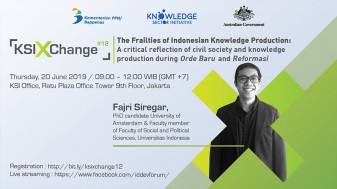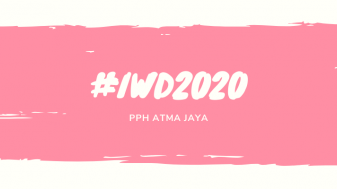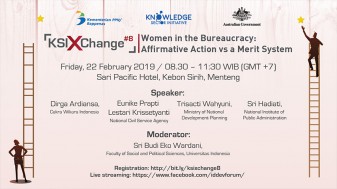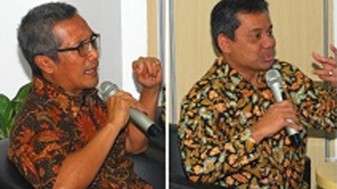"A better understanding of what gender issues entail is the first step that Government agencies must take, otherwise it is not possible for them to create appropriate plans and activities to address gender issues and overcome problems related to them."
Ir. Destri Handayani ME, Directorate of Family, Women, Children, Youth and Sports at Bappenas.
Knowledge Sharing Session organised by the Knowledge Sector Initiative (KSI) in Jakarta.
Gender issues were introduced into the development discourse in Indonesia some 20 years ago. However, development activities have often failed to meet their objectives, as they were rarely based on good quality knowledge – knowledge that treats gender equality and social inclusion (GESI) as important components of the development process.
KSI organised a knowledge-sharing seminar on Gender Equality and Social Inclusion Perspectives in Research for Development, on the 7th of December 2016 at the Aryaduta Hotel, Jakarta. In preparation for the workshop, KSI asked Lies Marcoes, one of the country’s foremost gender experts, to carry out a GESI assessment of 16 knowledge products by KSI’s 16 research partners (pages/ksi-partners). She found that six knowledge products failed to consider GESI components, seven contained some aspects of social inclusion but not gender equality, and only three contained gender equality aspects.
Mbak Lies emphasised that failing to include the GESI perspective in the production of knowledge might result in policy recommendations that overlook the needs and interests of women and marginalised groups. If such research practices were to continue, it would severely hamper government efforts to accomplish the national development goals of Nawa Cita, which includes government’s commitment to protect vulneragle and marginal groups including women and children.
The findings were confirmed by the research institutes at the workshop. A presentation by Ibu Widjajanti Isdijoso, the deputy director of SMERU, showed that even though aspects of social inclusion issues, such as social inequality and poverty, are a research focus of the institute, the institute recognises that it has not been able to take the gender aspect further in-depth in its research. In line with some issues raised by Lies Marcoes during her presentation, SMERU continues to face challenges related to data, in that it is still unable to disaggregate primary data properly. Meanwhile, the available secondary data are not disaggregated, making it difficult to integrate gender aspects in research. She also highlighted the lack of understanding, interest, sensitivity and exposure to GESI issues as factors hindering researchers in generating quality research that should form the basis of inclusive public policy.
Discussing the paradigm change and GESI sensitivity also served to shine a light on infrastructure development programs in Indonesia. In general, infrastructure development programs do not use a GESI perspective. Bpk. Eko Setyo Utomo, a gender officer at the INDII program, said there were very few engineers who understand the importance of GESI and the inclusion of women, children and marginalised people in infrastructure development projects. For them, GESI is considered too theoretical to be integrated into infrastructure projects. Such conditions require that GESI practitioners are able to explain to the Government and engineers that GESI integration in infrastructure development is uncomplicated and easy to apply, is based on real needs, and is directly relevant to the working practices of those engineers. Infrastructure issues, such as sanitation and public transportation, are highly important to both women and men, but often for different reasons.
Ibu Siti Maemunah of the Sajogyo Institute, a research institute that focuses on agrarian issues and rural development, presented another lesson that helped enrich the discussion. The Sajogyo Institute has included GESI aspects as a major part of its research. Ibu Siti Maemunah said that meeting with women or women’s groups in traditional communities had become a major challenge for researchers working with women. Therefore, embedding a GESI perspective in research takes a long time. She said researchers are required to adapt quickly to local conditions, and should also be able to play a social role. This would help gain access to meet with women’s groups. Various methods of data collection should be pursued, including following women and observing their activities throughout the day. Currently, few researchers are equipped with the skills to create a space for women to step up and speak up.
The discussion also touched on the role of development partners who insist on the integration of GESI in research programs. On one hand, they are the party that effectively drives the integration of GESI in research. “If there is no request from the donor, they would not consider GESI,” said one of the participants cynically. But on the other hand, sometimes development partners can also be a barrier, for example, when a research institute tried to disaggregate data by sex, the donor asked if it was necessary, as the study was considered not directly related to gender issues.
How can we ensure that national development is based on research with a GESI perspective? It is imperative for researchers and policy makers to understand that the aim of a GESI research strategy is social change, rather than just the research itself. Hence, all research steps include: design, approach, methods of data collection, and ways to read and analyse data. Recommendations and conclusions should be based on a solid understanding of knowledge management for inclusive change.
When sharing lessons learned, the speakers emphasised that research should aim to improve the visibility of women, children and other marginalised communities. It should be done in a participatory way to avoid being exclusive. Speakers said a lack of GESI narrative was a particular weakness in the way research was usually performed, and that this made it appear that the issue did not exist. According to Eko Setyo Utomo, injustice is becoming increasingly complex; it is not enough to use the usual normative approaches, and researchers should be more innovative to produce smart solutions and address issues.
KSI fully supports GESI mainstreaming in development programs. “We have a gender task force to ensure that GESI perspectives are integrated in research activities that form the basis of inclusive development policies in Indonesia,” KSI team leader Petra Karetji said. To improve the quality of research, KSI also facilitated the formation of the “Alliance for Research Excellence” (Alliance for Research Excellence Declared) in September 2016. This alliance formulates the values and principles of what is considered research excellence, and emphasises the importance of peer review and exchanging resources among research institutions. It is expected that KSI’s support for GESI aspects will boost the achievement of the Nawa Cita national development program in Indonesia.

